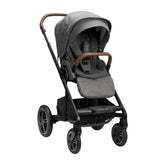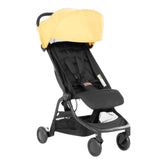Tandem Breastfeeding: What It Is and How to Make It Work

You’ve finally gotten the hang of breastfeeding, and now you learn that you’re pregnant again. For some moms, deciding whether to wean their older child or continue breastfeeding isn’t a clear-cut choice. You may wonder whether it’s safe or whether each child will get enough milk. Breastfeeding siblings is referred to as tandem nursing, and in most cases, it’s a common, healthy, and typically safe choice. Let’s take a closer look at breastfeeding in tandem and whether it might work for your family.
What is Tandem Nursing and How Does It Work?
Tandem nursing means that you’re breastfeeding two or more little ones of different ages simultaneously. Typically, this happens when you have an older infant or nursing toddler, and you become pregnant or adopt a new baby. For many mothers, this means you’ll be nursing the older child during pregnancy.
Tandem nursing is comparable to breastfeeding twins in that you’ll be trying to breastfeed more than one child at the same time. It differs in that you’re breastfeeding children of different ages. Typically, the older child won’t depend on the nutritional value of nursing as much since they’re also eating solid food. They also probably won’t need to nurse as often as your new infant.
Why People Choose Tandem Breastfeeding: Advantages and Benefits
Both the American Academy of Pediatrics (AAP) and the World Health Organization (WHO) advise exclusive breastfeeding until a baby is 6 months old. Following that, the AAP suggests continued nursing until age 2 years and then as long as is mutually desired. WHO also advises breastfeeding until at least 2 years and beyond.
Some parents become pregnant again before they’ve met their breastfeeding goals and may choose extended tandem breastfeeding. Older children who continue nursing after a sibling is born still receive the extra immune system benefits found in colostrum. Some parents may simply want to continue the emotional connection nursing provides. In other cases, breastfeeding parents who have adopted an infant may want to take the opportunity to nurse that infant. In these cases, tandem nursing is a chance to breastfeed without needing to artificially induce lactation.
Can I Breastfeed While Pregnant?
Nursing while pregnant isn’t considered tandem breastfeeding, but that’s when you’ll probably start noticing changes. Hormonal changes may influence your milk supply and your comfort level with breastfeeding. Discuss any concerns you may have with your healthcare provider, particularly if you’ve had a prior miscarriage, a preterm birth, or if your other child is less than 12 months old.
Do You Get Colostrum When Tandem Nursing?
After your newborn arrives, your breast milk will return to colostrum, and your older child may not be happy about the flavor or the reduced supply. Rest assured that the older nursing child will not deprive the newborn of colostrum by nursing, regardless of how frequently or long they nurse.
Can I Breastfeed My Toddler and Newborn at the Same Time?
Nursing works on a “supply and demand” basis, and your body will accommodate both your babies’ needs. That said, many parents prefer to breastfeed their newborn first, then allow their older child to nurse, particularly in the early weeks. Your older child may become interested in resuming breastfeeding once your mature milk returns.
Popular Positions for Tandem Breastfeeding
Some of the tandem breastfeeding positions that parents prefer are similar to the positions used by parents who are breastfeeding twins. Positions and holds may include:
- Holding your newborn in a “football hold” at the side of your body while snuggling your older child in your lap to nurse.
- Reclining on a bed with both your newborn and your toddler on you while you nurse.
- Cradling your newborn in your arm while your older child kneels beside you to nurse.
Some parents nurse their kids together, while others prefer to breastfeed them separately. Do what works best for you. Talk to your older child about nursing before the new baby arrives. Explain that a newborn can’t have “big kid” foods yet like they can and will need to nurse more. This can help make sharing you a little easier for your child. Let your pediatrician know that you intend to tandem nurse as well so they can monitor your infant’s growth to ensure they’re getting enough milk.

More Tandem Breastfeeding Tips
Nursing multiple children means you will have your hands completely full for a while.
- Eat a healthy, well-balanced diet with additional calories and stay hydrated. Your body requires extra energy to produce extra breast milk.
- Postpartum fatigue can be intense with two children and can inhibit your ability to produce milk. Try to rest as much as possible, get help, and let the housework go.
- The additional stimulation that nursing your older child provides will help increase your supply of breast milk. Frequently, in the first early weeks, your supply will adjust to feeding both of your kids in the same manner that it would for someone who is nursing twins. This may result in an overabundant milk supply. If this happens, you can do things to manage it, such as reclining while nursing and feeding from only one breast.
- Know that others may not support or understand your choice to nurse in tandem, and you may feel pressured to wean your older child. As long as both children are healthy and gaining weight, though, you can continue tandem breastfeeding as long as you wish. On the other hand, if tandem nursing is too much for you, don’t feel guilty about weaning. If your older child is more than a year old, they can meet all of their nutritional needs with healthy solid foods (and you can continue to give them lots of close snuggles like you did when nursing). If your older child is younger than a year, talk to their pediatrician about supplements.
- Talk to your doctor or a lactation consultant about any concerns you may have about nursing two children at the same time. Find support, advice, and acceptance in local nursing groups.
The Takeaway on Tandem Nursing
Nursing an older child beside your newborn baby can be exhausting, but it can also be joyful. Do what feels right for your family. As long as everyone is happy and comfortable, you can opt to continue breastfeeding both children for as long as you want.









